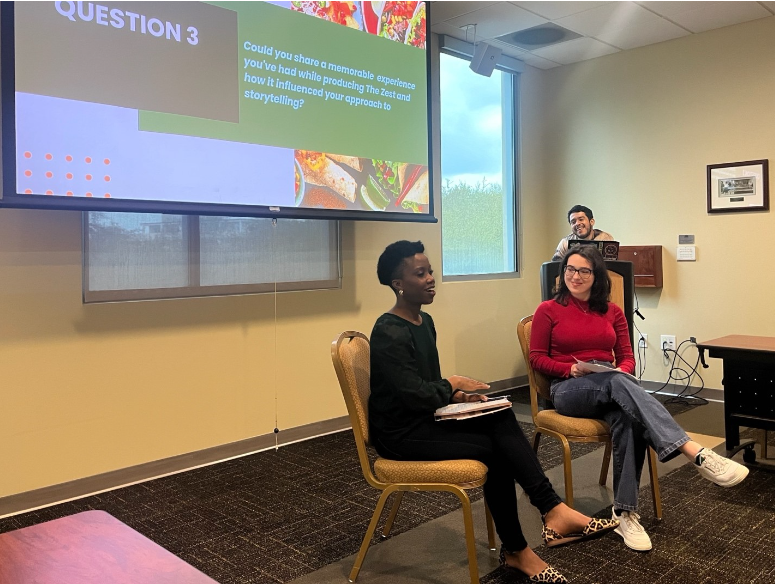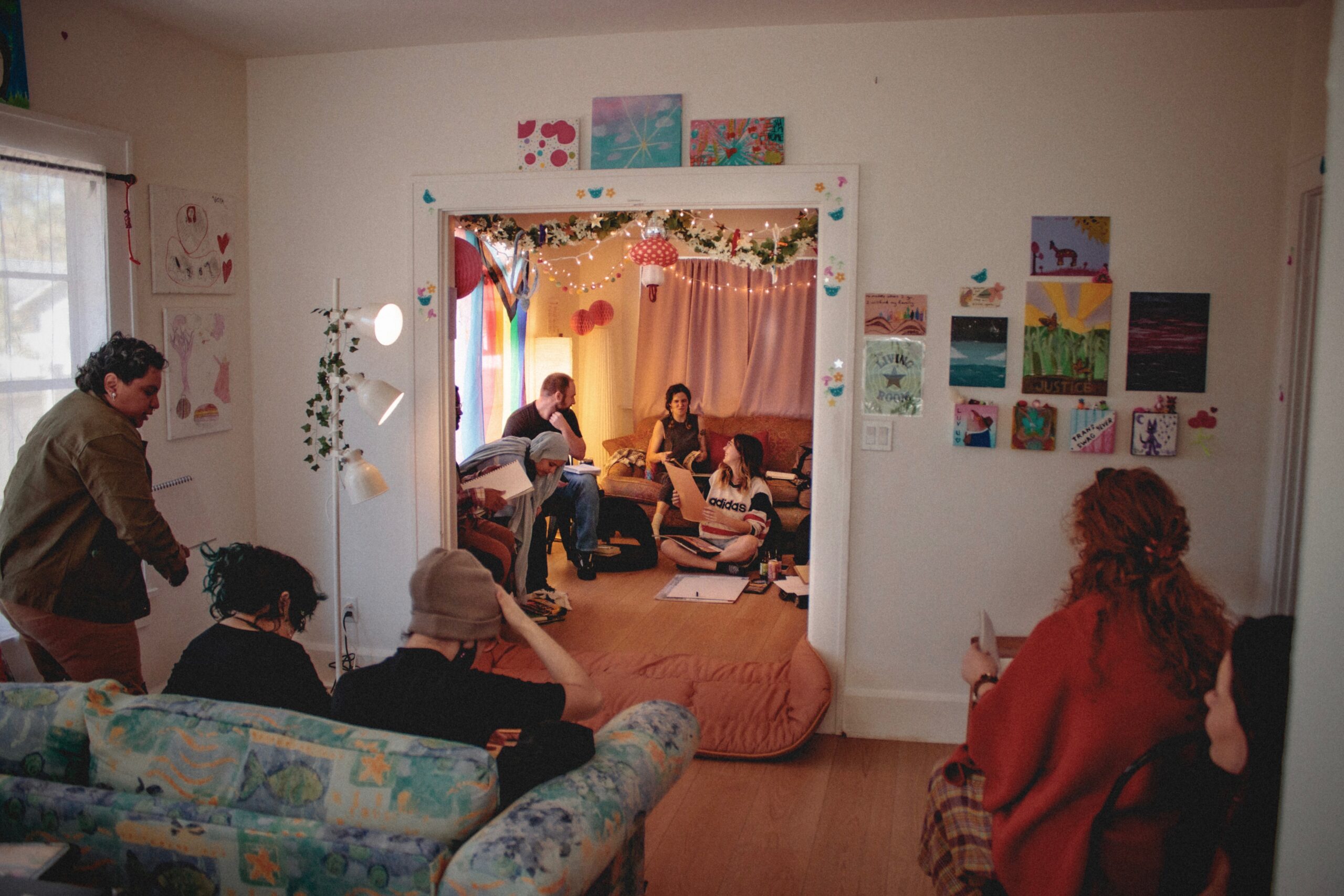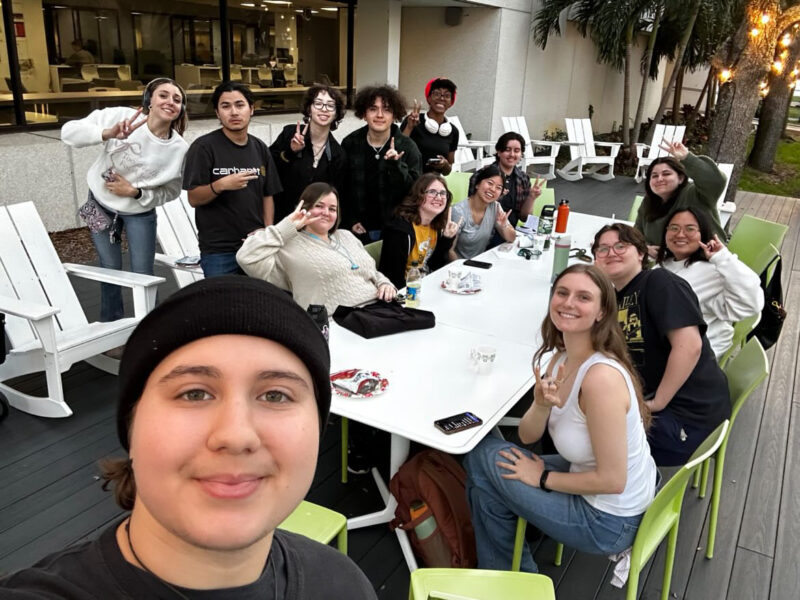Sands interviewing Dalia Colón about her experiences with her podcast “The Zest” at Culinary Club’s first meeting.
Photo courtesy of Lucas Scott
By Nadia Colimon
The University of South Florida’s Culinary Club was born out of a simple yet relatable struggle: navigating the challenges of cooking in a dorm kitchen with little to no experience.
Junior Emily Sands moved into the dorms during her freshman year of college, relying on food from the dining hall for most of her meals. Although the food was convenient, it was “hard to eat,” so she decided to try and make her own food despite the limited resources she was provided.
Sands had no idea where to start when it came to cooking.
After starting to read about cooking and listening to podcasts, her skills began to grow by asking for help from her friends who come from different cultural backgrounds.
“USF St. Petersburg is a really diverse campus and a lot of my friends were able to share different recipes from around the world that I had never even thought of trying,” Sands said. “My best friend is Haitian and she makes something really good called epis; it’s the basis of most of their cooking.”
After learning about different cuisines from others and developing her culinary skills, Sands decided to start a Culinary Club at USF.
“Once I felt comfortable in my own skills, I decided if I can make the experience easier for other freshmen, why not?” Sands said.
She took the idea of exploring different cuisines and incorporated that in the club’s main values. Because USF is so diverse, it was important for them to promote cultural appreciation and the food traditions of other countries.
“Our club is still a baby. We haven’t fully gotten to where I know we could go, but the growth already has been impressive,” Sands said.
Being a new addition to the university’s long list of clubs, it struggles to find a place to host meetings with a certified food-safe kitchen. They found a break room on campus that they can use with hot plates, an air fryer and a sink, but this does not suffice to hold meetings with a larger number of people.
“We’re hoping for something in the Honors College eventually,” said Lucas Scott, the club’s director of outreach. “I know they’ve got gorgeous kitchens from what I’ve seen, but that might be a little hopeful because I know they like to keep them real nice.”
Teaching basic culinary skills is one of the main goals of culinary club, but without the proper space, it’s hard to have in-person meetings to teach those skills.
“Our goal is to have in person classes to teach people, but to also have a podcast or cooking series as a lasting piece of media so people who can’t attend in person can still get the experience,” Sands said.
Their most recent meeting focused on the host and producer of WUSF’s food podcast, The Zest, to speak about her experiences with creating this podcast and her food journey.
Although they’re struggling to find a space that would allow more opportunity for the group, the members of Culinary Club feel that the growth is inspiring, and they are hopeful for what the future has in store.



